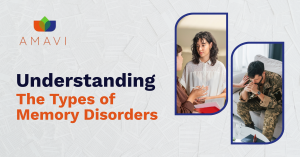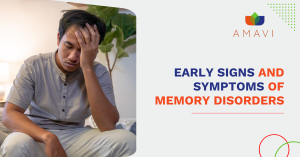The arrival of a new baby is often portrayed as a joyous occasion, but for many mothers, it can also bring unexpected challenges. Postpartum Depression (PPD) is a serious mood disorder that affects women after childbirth, disrupting their emotional well-being and ability to care for themselves and their baby. Recognizing the signs and seeking help early is essential for recovery. This blog explores PPD, its symptoms and risk factors, coping strategies, and when to seek professional assistance.
Postpartum Depression Overview
Postpartum depression is a type of mood disorder that occurs in the weeks or months following childbirth. Unlike the “baby blues,” which are common and typically subside within a few days, PPD is more severe and long-lasting. It affects about 1 in 7 women, though the exact prevalence may vary depending on cultural and socioeconomic factors.
Key Characteristics of PPD:
- Onset can occur shortly after delivery or even months later, up to a year postpartum.
- It affects a mother’s ability to bond with her baby and manage daily tasks.
- Left untreated, it can have long-term effects on both the mother and the child’s emotional and cognitive development.
PPD is not a sign of weakness or failure but rather a medical condition that requires understanding and support. Both biological and psychosocial factors play a role in its development.
Symptoms and Risk Factors
Symptoms of Postpartum Depression
PPD symptoms can vary in intensity and impact. They often include a mix of emotional, physical, and behavioral changes.
Emotional Symptoms:
- Persistent sadness or hopelessness
- Feelings of guilt or inadequacy as a mother
- Irritability, anger, or mood swings
Behavioral Symptoms:
- Withdrawal from family and friends
- Loss of interest in activities once enjoyed
- Difficulty bonding with the baby
Cognitive Symptoms:
Difficulty concentrating or making decisions
Intrusive thoughts, including fear of harming oneself or the baby
Physical Symptoms:
- Fatigue or loss of energy
- Changes in appetite and sleep patterns
- Physical complaints, such as headaches or body pain
Severe Cases: In rare instances, PPD can escalate into postpartum psychosis, a medical emergency characterized by hallucinations, paranoia, or delusions.
Risk Factors for PPD
Several factors increase the likelihood of developing PPD:
- Biological Factors:
- Rapid hormonal changes after childbirth, including drops in estrogen and progesterone, can trigger mood disturbances.
- Thyroid dysfunction may exacerbate fatigue and depression.
- Psychological Factors:
- A history of depression, anxiety, or bipolar disorder increases susceptibility.
- Poor self-esteem or perfectionist tendencies can intensify feelings of inadequacy.
- Environmental Factors:
- Lack of social support from family, friends, or a partner.
- Stress from financial difficulties, job changes, or other life transitions.
- Obstetric Factors:
- Complications during pregnancy or delivery.
- Premature birth or health challenges in the baby.
- Lifestyle Factors:
- Sleep deprivation and the physical demands of caring for a newborn can exacerbate emotional strain.
Identifying these risk factors early allows for preventative measures and tailored support.
Coping Strategies
While professional treatment is vital for moderate to severe cases, there are effective self-help strategies that mothers can incorporate into their routines to manage mild symptoms and support recovery.
1. Build a Support Network
- Connect with Others: Share your feelings with trusted family members or friends.
- Join a Support Group: Many communities and online platforms offer support groups for mothers with PPD.
2. Prioritize Self-Care
- Rest When Possible: Sleep deprivation worsens mood symptoms, so take naps when the baby sleeps.
- Eat a Balanced Diet: Focus on foods rich in omega-3 fatty acids, whole grains, and lean proteins to support mental health.
- Engage in Gentle Exercise: Activities like walking or yoga can boost endorphins and improve mood.
3. Practice Stress Management
- Mindfulness and Relaxation: Techniques like deep breathing, meditation, or progressive muscle relaxation can reduce anxiety.
- Set Realistic Goals: Break tasks into smaller steps and celebrate small achievements.
4. Strengthen the Parent-Child Bond
- Skin-to-Skin Contact: Physical closeness helps release oxytocin, fostering emotional connection.
- Engage in Simple Activities: Reading, singing, or playing with the baby strengthens the bond while reducing stress.
These coping strategies are not a substitute for professional care but can complement treatment plans to enhance overall well-being.
When to Seek Professional Help
It’s crucial to differentiate between the normal challenges of adjusting to motherhood and symptoms that require medical intervention. If symptoms persist for more than two weeks, worsen over time, or interfere with daily functioning, professional help is necessary.
Signs to Watch For:
- Persistent feelings of sadness, hopelessness, or guilt.
- Thoughts of self-harm or harming the baby.
- Inability to care for oneself or the baby.
- Loss of interest in life or feelings of detachment from reality.
Professional Treatment Options
- Psychotherapy:
- Cognitive Behavioral Therapy (CBT): Helps identify and change negative thought patterns.
- Interpersonal Therapy (IPT): Focuses on improving relationships and social support.
- Medications:
- Antidepressants: SSRIs like sertraline or fluoxetine are commonly prescribed and considered safe for breastfeeding.
- Hormonal Therapy: In some cases, balancing hormone levels can help alleviate symptoms.
- Combination Therapy:
- Many women benefit from a mix of therapy and medication tailored to their needs.
- Inpatient Care for Severe Cases:
- For women experiencing postpartum psychosis or severe depression, inpatient care ensures safety and comprehensive treatment.
Importance of Early Intervention
Timely treatment not only improves the mother’s mental health but also fosters a healthy environment for the baby’s emotional and cognitive development. Early diagnosis and intervention lead to better outcomes for both mother and child.
Breaking the Stigma Around PPD
Postpartum depression is often surrounded by stigma, leading many mothers to feel ashamed or reluctant to seek help. It’s essential to normalize conversations about maternal mental health and emphasize that PPD is a medical condition, not a personal failure.
How to Support Mothers with PPD
- Listen Without Judgment: Validate their feelings and experiences.
- Offer Practical Help: Assist with household chores, childcare, or errands.
- Encourage Professional Help: Reassure them that seeking treatment is a sign of strength.
Postpartum depression is a significant but treatable condition that affects many new mothers. Recognizing the symptoms, understanding the risk factors, and seeking help early are key to recovery. Through a combination of self-care, social support, and professional treatment, mothers can regain their emotional balance and build a strong bond with their baby.
At Amavi Integrative Mental Wellness, we specialize in providing compassionate, evidence-based care for postpartum depression. Our team is dedicated to helping mothers navigate the challenges of new parenthood with personalized treatment plans that meet their unique needs. If you or someone you know is struggling with PPD, don’t hesitate to reach out. Together, we can ensure a brighter, healthier future for both mother and child.





